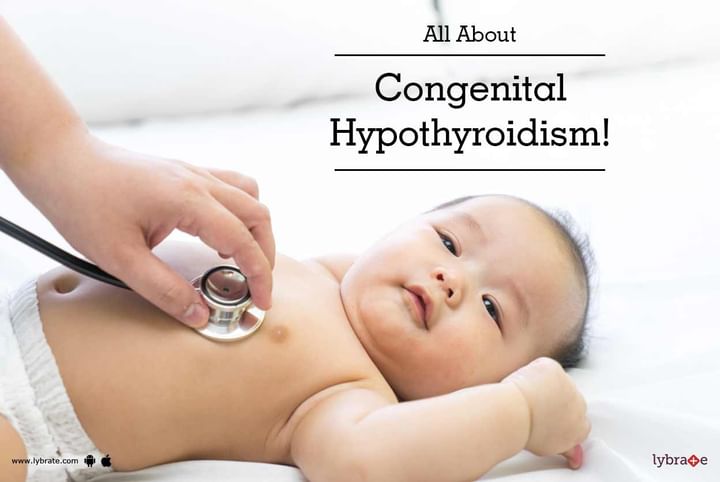All About Congenital Hypothyroidism!
What is congenital hypothyroidism?
Newborn babies who are unable to make enough thyroid hormone have congenital hypothyroidism, meaning they are born with an underactive or absent thyroid gland. If the condition is not found and treated, children can have mental retardation and growth failure. But the good news is that early diagnosis and proper treatment can prevent these problems. In most cases, the condition is permanent and your child will need lifelong treatment.
What causes congenital hypothyroidism?
The most common causes are
- An underdeveloped thyroid gland
- A thyroid gland that’s not located where it should be (in the neck below the voice box or larynx)
- A missing thyroid gland
Other possible causes include
- Defective production of thyroid hormone (an inherited condition)
- Problems with the pituitary gland (located at the base of the brain), which tells the thyroid to make thyroid hormone
- Less commonly, a mother’s thyroid disease or medicines taken during pregnancy can cause congenital hypothyroidism.
What are the signs and symptoms of congenital hypothyroidism?
Many babies with congenital hypothyroidism appear normal at birth or for several months after birth. But others may have these signs and symptoms:
- Jaundice (yellowing of the skin and eyes)
- Constipation
- Poor muscle tone
- Sluggishness
- A hoarse cry
- They might also have
- Feeding problems
- A thick, large tongue
- A puffy-looking face
- A swollen abdomen, sometimes with “outpouching” of the belly button
- Large soft spots of the skull
Thyroid hormone deficiency can also occur in older babies or young children, even if test results at birth were normal.
Treatment
Early diagnosis is very important. Most of the effects of hypothyroidism are easy to reverse. For this reason, doctors always ask to get screening for hypothyroidism of your newborn.
Thyroxine is usually given to treat hypothyroidism. Once the child starts taking this medicine, blood tests are regularly done to make sure thyroid hormone levels are in a normal range.
When to Contact a Medical Professional
Call your health care provider if:
- You feel your infant shows signs or symptoms of hypothyroidism
- You are pregnant and have been exposed to antithyroid drugs or procedures
Prevention
If a pregnant woman takes radioactive iodine for thyroid cancer, the thyroid gland may be destroyed in the developing fetus. Infants whose mothers have taken such medicines should be observed carefully after birth for signs of hypothyroidism. Also, pregnant women should not avoid iodine-supplemented salt. If you wish to discuss about any specific problem, you can consult an endocrinologist.



+1.svg)
